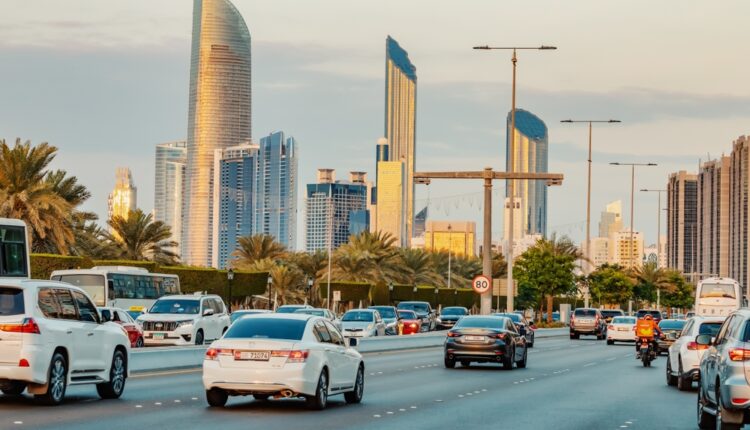The Future of the UAE Automotive Industry: Projections for 2030
The United Arab Emirates (UAE) boasts one of the fastest-growing automotive markets in the world, with the industry playing a pivotal role in driving economic growth. In recent years, the rapid adoption of electric vehicles (EVs) and cutting-edge automotive technologies has accelerated the industry’s transformation. Projections indicate a robust growth rate of 10% by 2030, signaling a new era for the UAE’s automotive sector. Hence, the four major components of growth include electric vehicles, advanced technologies, aftermarket parts, digital ecosystems, and the UAE’s ambitions for homegrown automotive production.
1. The Shift to Electric and Hybrid Vehicles: A Green Revolution
The UAE’s focus on sustainability and reducing its carbon footprint is placing electric vehicles at the forefront of the automotive market. Rising fuel prices, environmental concerns, and a strong commitment to combating climate change are driving the rapid adoption of EVs and hybrid cars. Thus, the government sets ambitious goals for reducing emissions. And by 2030, electric vehicles are expected to account for a significant portion of the market share.
To support this transition, the UAE is rapidly developing its EV infrastructure by expanding charging stations across the country. Dubai’s Road and Transport Authority (RTA) and Abu Dhabi’s Department of Energy are making efforts to make the country EV-ready, with smart grids and renewable energy sources backing this transformation. The initiatives are expected to reduce reliance on fuel and provide cleaner, greener transportation solutions.
Key Insight: By 2030, the UAE aims to have over 42,000 EV charging points, making it one of the most EV-friendly regions globally. Moreover, the government is providing incentives for EV adoption, including free parking, registration fee exemptions, and toll-free usage for electric car owners.
2. New & Advanced Automotive Technologies
The future of the UAE’s automotive industry lies in innovation and advanced technologies. Autonomous vehicles, AI-powered driving systems, and connected car technologies redefine how people commute. Hence, the UAE is investing heavily in autonomous vehicle research, with trials for self-driving cars already underway in cities like Dubai.
In addition, smart vehicle systems such as enhanced navigation, predictive maintenance, and vehicle-to-infrastructure (V2I) communication will play a significant role in optimizing road safety and reducing congestion.
Key Insight: The UAE is positioning itself as a leader in autonomous transportation. Dubai aims for 25% of transportation to be driverless by 2030.
3. Aftermarket Parts & Services: A Growing Market
The demand for vehicle customization and upgrades is increasing as consumers seek advanced aftermarket parts to enhance their driving experience. From high-performance tires and batteries to cutting-edge entertainment systems and eco-friendly air conditioning units, the aftermarket segment is booming. This trend is fueled by consumers’ desire to personalize their vehicles while integrating modern technologies that offer improved performance and sustainability.
Furthermore, with more advanced vehicles on the road, the need for maintenance, repair services, and spare parts will grow exponentially. This presents opportunities for local manufacturers and distributors to meet the rising demand for premium and eco-friendly aftermarket products.
Key Insight: The aftermarket sector is projected to grow at an unprecedented rate. It is fueled by increased demand for electric vehicle parts, smart accessories, and energy-efficient solutions.
4. The Rise of the Digital Ecosystem: A Seamless Experience
The UAE’s digital transformation is not limited to retail or services; the automotive industry is increasingly digitalized, offering online platforms for purchasing cars, parts, and services. Hence, consumers now have access to a variety of apps and e-commerce platforms that offer everything from vehicle maintenance to spare parts and customization services—all from the comfort of their homes.
Automotive e-commerce platforms are growing rapidly, helping consumers find a wide range of products and services without visiting physical stores. Moreover, digital solutions also provide more transparency and convenience, offering competitive pricing, customer reviews, and instant delivery options.
Key Insight: Online vehicle marketplaces and e-service platforms will see continued growth. These platforms provide consumers with easy access to a range of services, from vehicle diagnostics to buying spare parts. The convenience of digital platforms is expected to lead to a 20% growth in online automotive services by 2027.
5. UAE’s Ambitions for Homegrown Production
Currently, the UAE relies heavily on automotive imports from global manufacturing brands like Japan, South Korea, and the United States. Brands such as Toyota, Nissan, Kia, and Hyundai dominate the market. However, the UAE is preparing to transform its automotive landscape by fostering local manufacturing capabilities. The government’s vision includes developing a competitive, homegrown automotive industry that will not only meet local demand but also position the UAE as an exporter of vehicles and automotive technologies.
Investments in research, innovation, and partnerships with global brands will support the development of domestic manufacturing. In addition, the creation of a local supply chain for EVs and smart vehicles will play a crucial role in reducing costs and fostering technological innovation.
Key Insight: The UAE plans to establish itself as a leading regional automotive manufacturer by 2030, focusing on high-end vehicles and electric car production. It will help diversify the economy, reduce reliance on imports, and create significant employment opportunities in the automotive sector.

